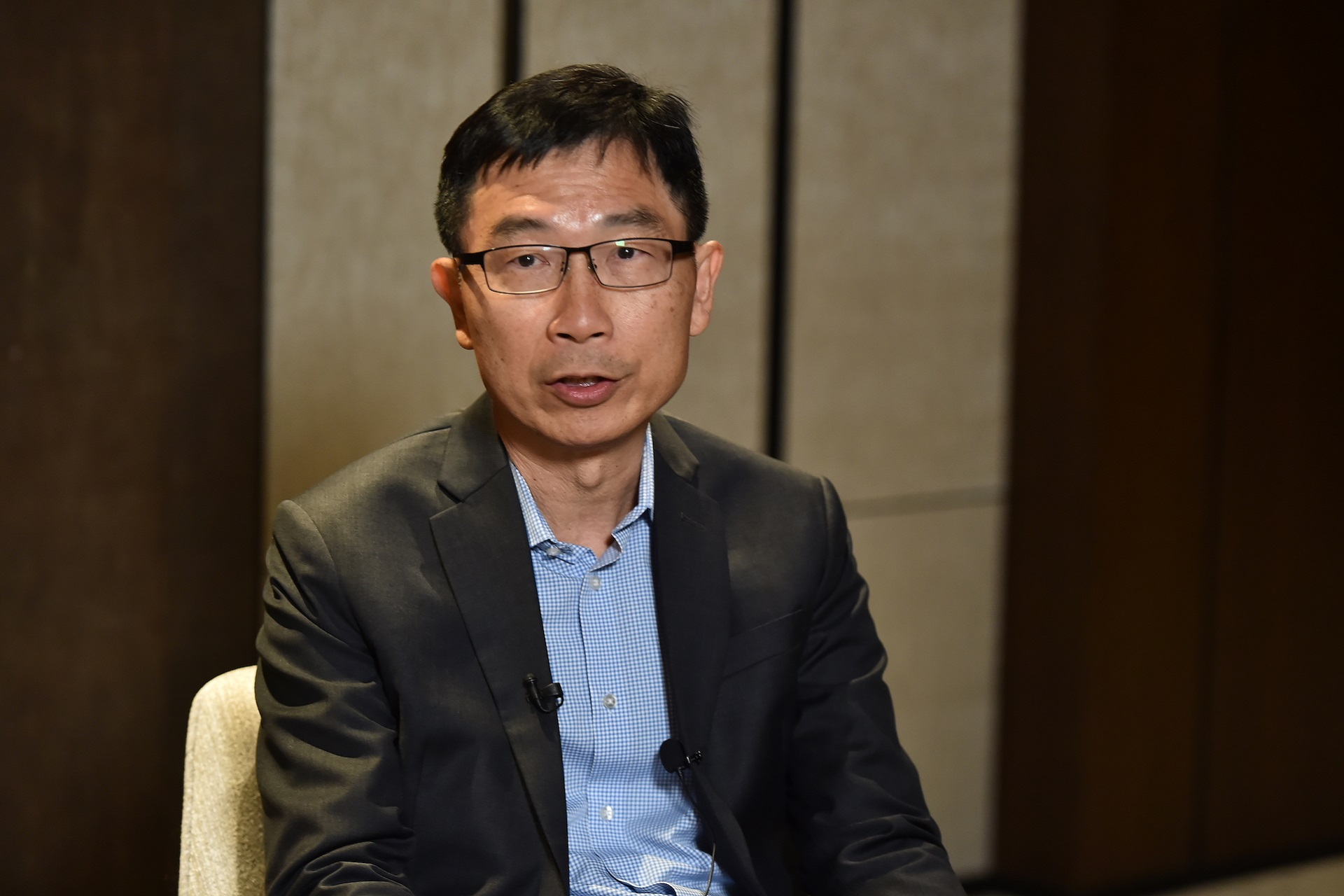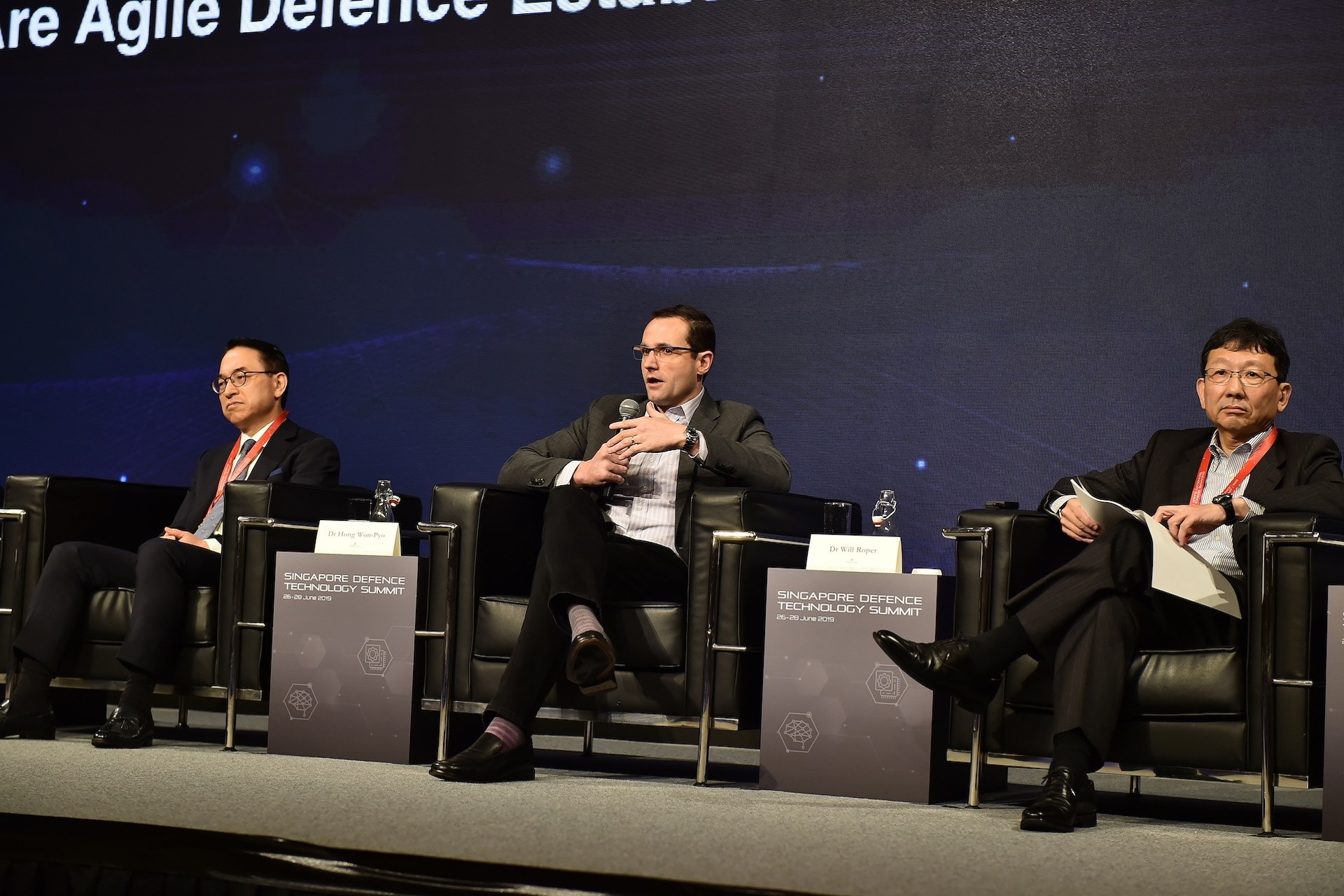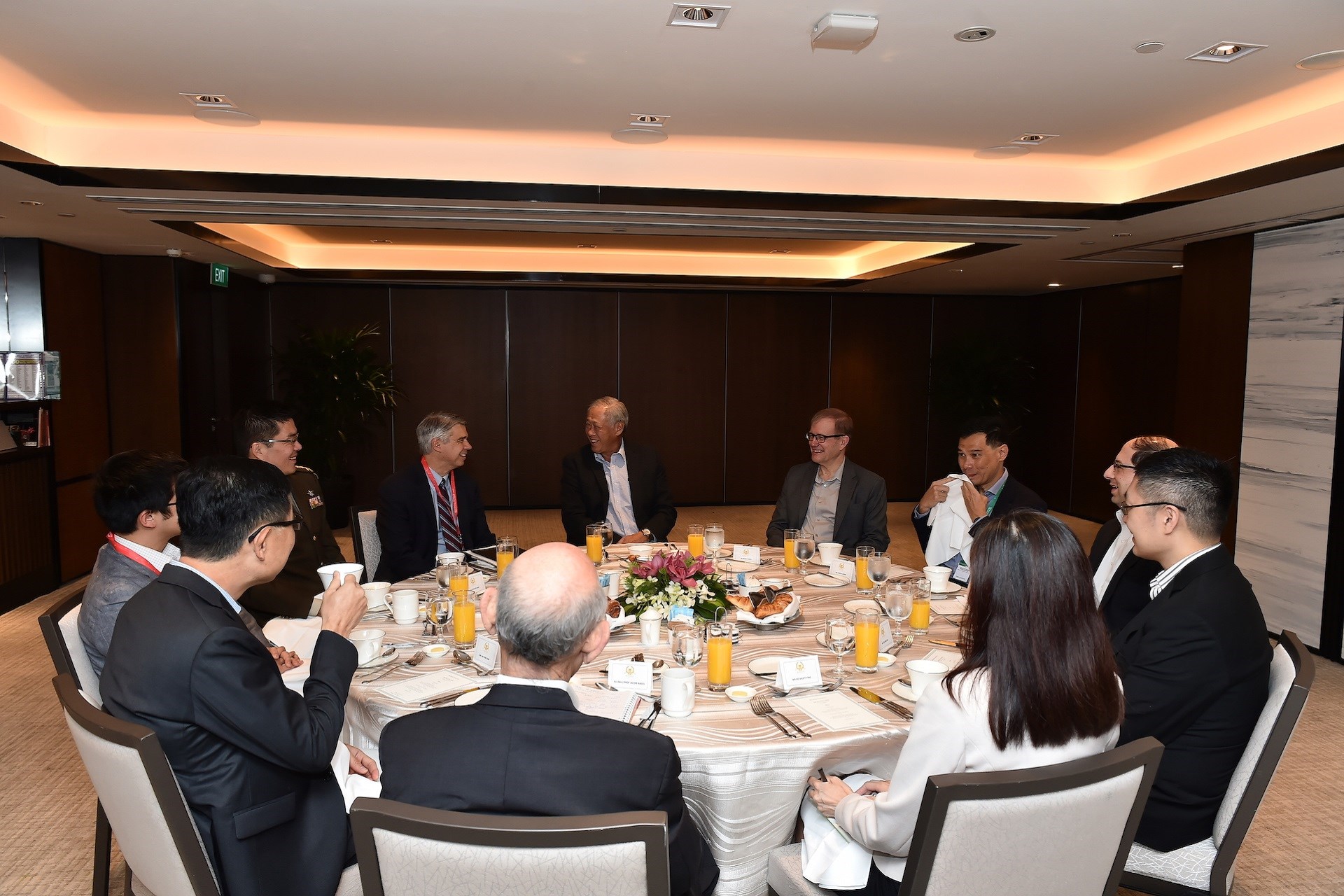TECHNOLOGY
SMART TECH, AGILE DEFENCE DISCUSSED AT TECH SUMMIT
28 Jun 2019
Harnessing advanced technologies, putting in place agile systems and collaborating with industries are some of the things that the defence technology sector has to do to keep up with rapid change.
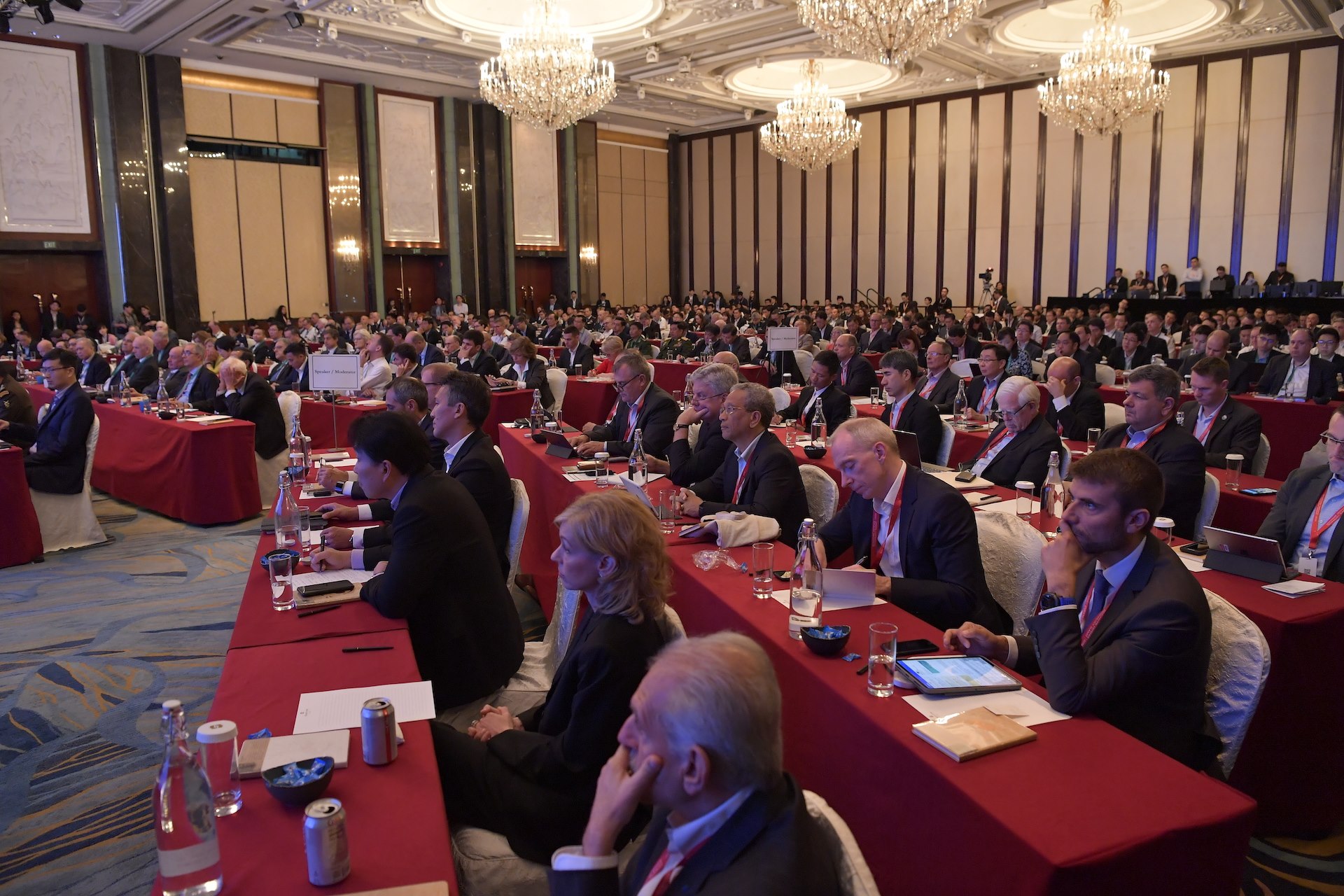
Harnessing advanced technologies, putting in place agile systems and collaborating with industries are some of the things that the defence technology sector has to do to keep up with rapid change.
These were the takeaways from the second Singapore Defence Technology Summit, hosted by the Defence Science and Technology Agency (DSTA).
At the three-day event, which took place from 26 to 28 Jun at Shangri-La Hotel, about 400 delegates from 23 countries convened to discuss the boons and banes of technology such as artificial intelligence (AI), drones and neuroscience.
"By connecting all these global tech leaders together, the tech summit generated many useful insights and perspectives," said DSTA Chief Executive Tan Peng Yam at a media interview on 28 Jun.
Highlighting some of the key takeaways, Mr Tan said: "We see that technology is porous – that means that development is taking place everywhere… Because of that, the key challenge is how fast we can harness these advanced technologies and translate them into robust capabilities."
He added that to do this, organisations must collaborate with different partners, ranging from other big organisations to start-ups and academia.
Ahead of the tech summit, DSTA held a technology exchange with the United States (US) Department of Defence (DOD) Joint Artificial Intelligence Centre to promote collaboration around AI.
The exchange will focus on how AI capabilities can enhance operations during humanitarian assistance and disaster relief missions, especially in the disaster-prone Asia-Pacific region.
US DOD Assistant Secretary of the Air Force for Acquisition, Technology and Logistics, Dr Will Roper, agreed that more attention needs to be given to small businesses and start-ups.
Speaking on a panel called "Are agile defence establishments possible?", Dr Roper said: "Companies changing the world right now were once small."
He added that the US Air Force is building an early connection with "the next generation of companies". "We're helping them grow, so they think of their products as commercial products but with a responsibility in national security as well."
Speaking to the media in an interview after the panel, Dr Roper said that the US is open to adopting tech that is being used in Singapore – namely DSTA's predictive maintenance tool that is used by the Republic of Singapore Air Force.
"I was impressed with the software they have… (It does) not just tell you that a screw is loose or a panel is loose, but…it's also predicting failure based on flight rate," said Dr Roper.
As part of the summit, the delegates will be making tech visits to various sites housing innovation projects including DSTA, DSO National Laboratories and the Republic of Singapore Navy's Littoral Mission Vessel simulation centre, among others.
Defence Minister Dr Ng Eng Hen also hosted a lunch for DOD officials on 26 Jun and a breakfast for international technology experts on 28 Jun, on the sidelines of the summit.
ALSO READ IN TECHNOLOGY
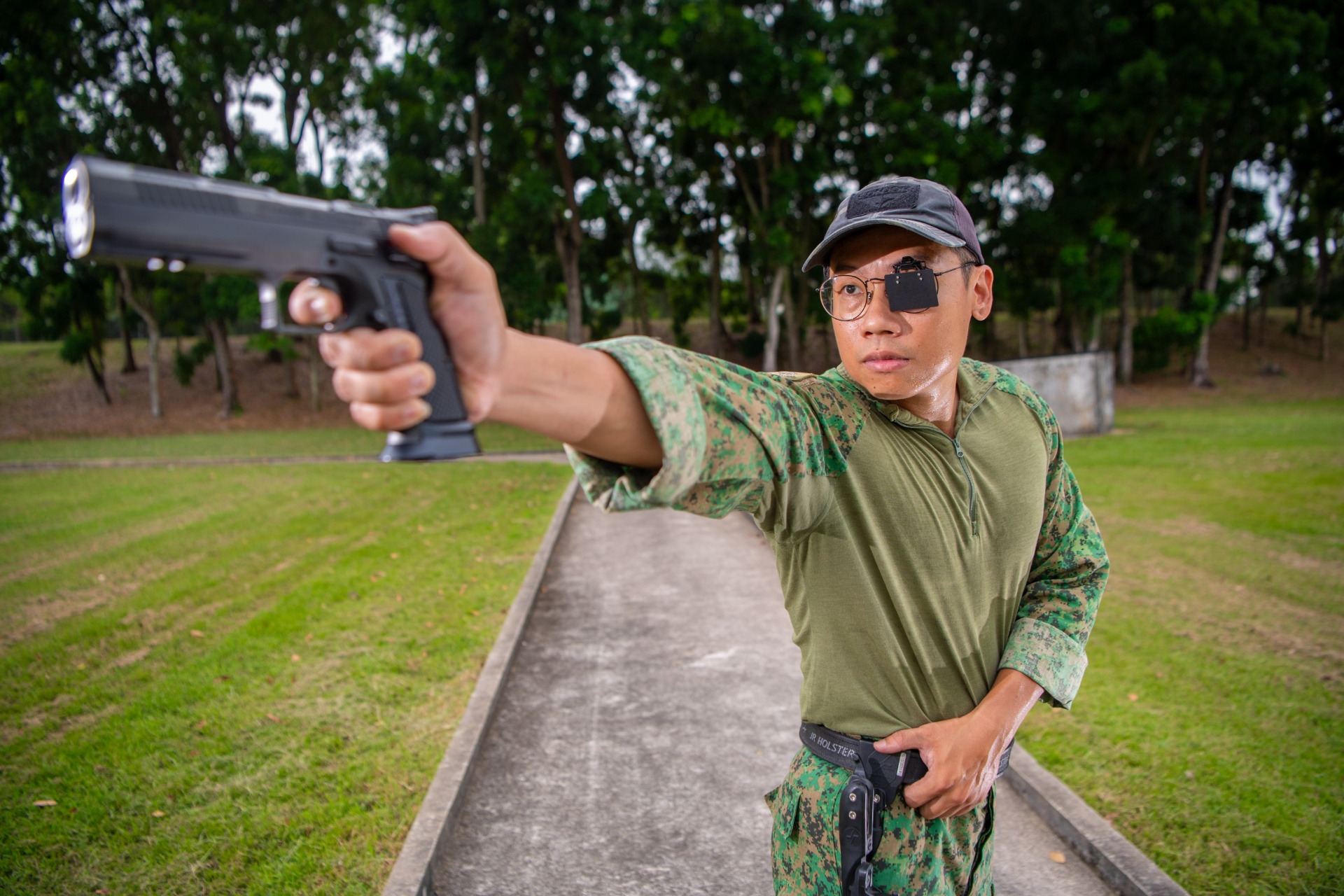
Locked & Loaded: SAF Shooting Contingent weapons
26 Nov 2025
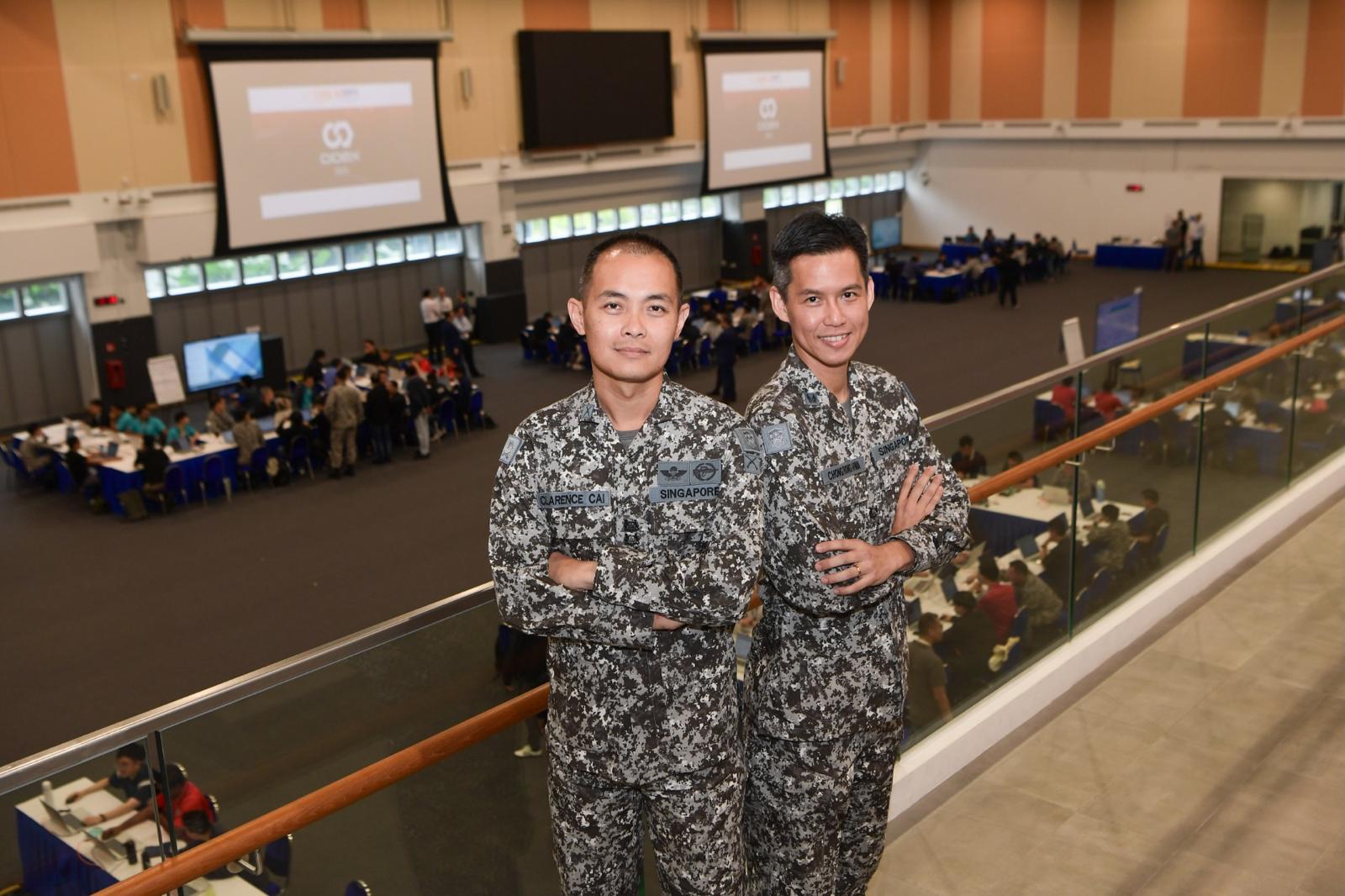
AI joins the fight in national cyber defence exercise
12 Nov 2025
AI and closer collaboration among agencies and industry are taking centre stage in this year’s Critical Infrastructure Defence Exercise (CIDeX).
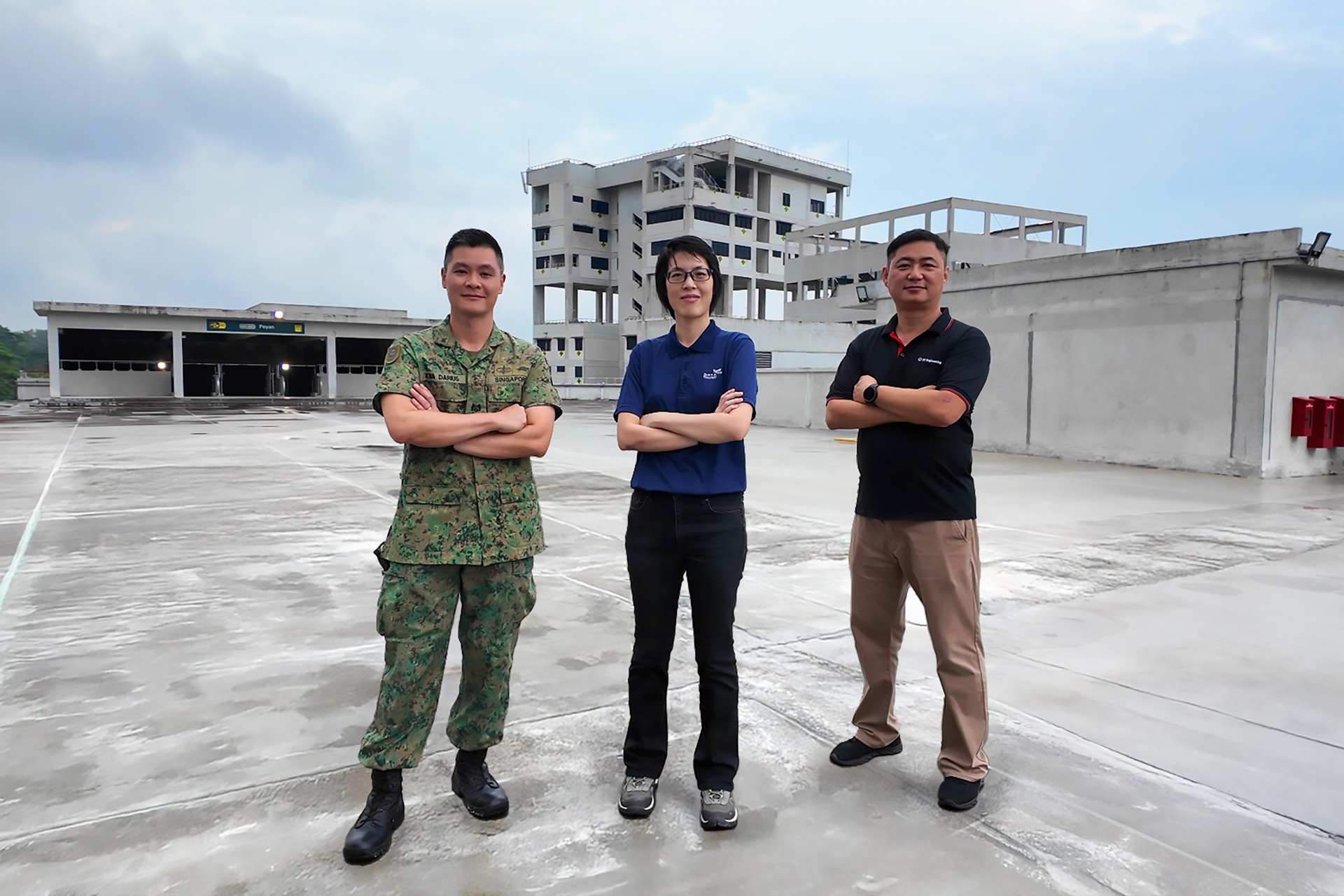
They built this city
01 Oct 2025
Turning vision to reality: the team behind SAFTI City clinches the Defence Technology Prize 2025 Team (Engineering) Award!


